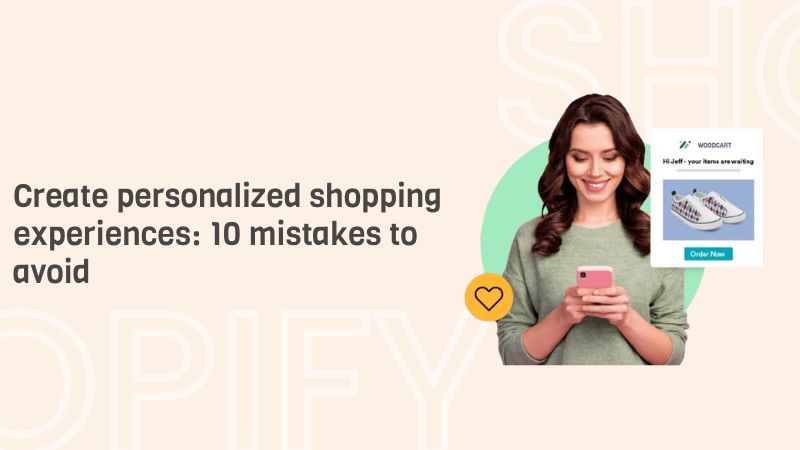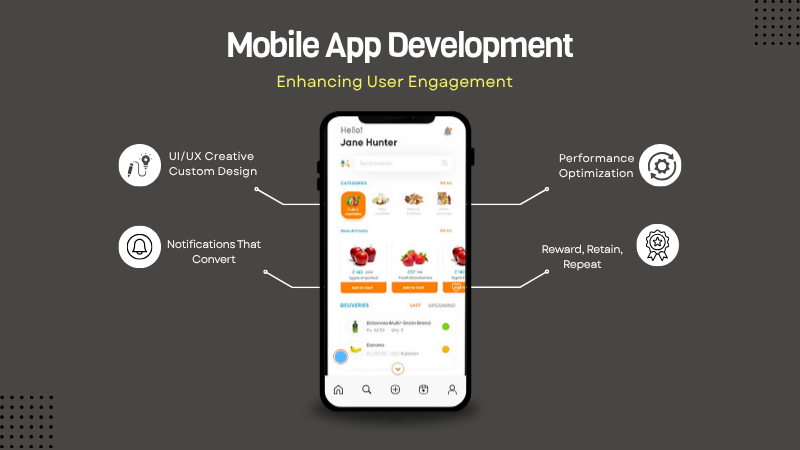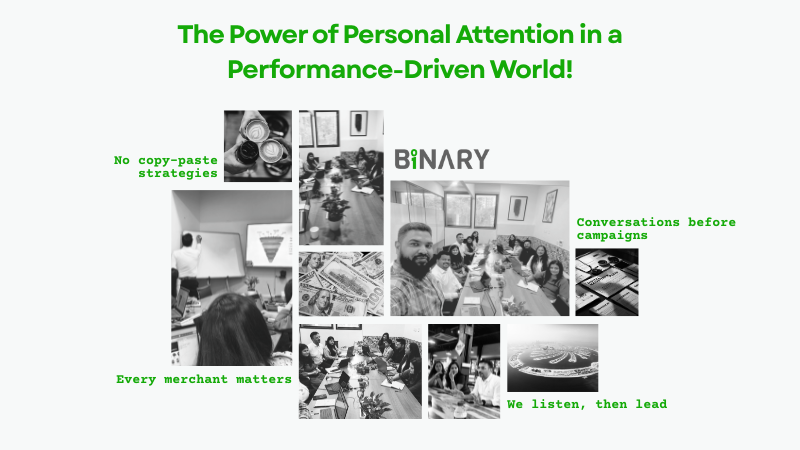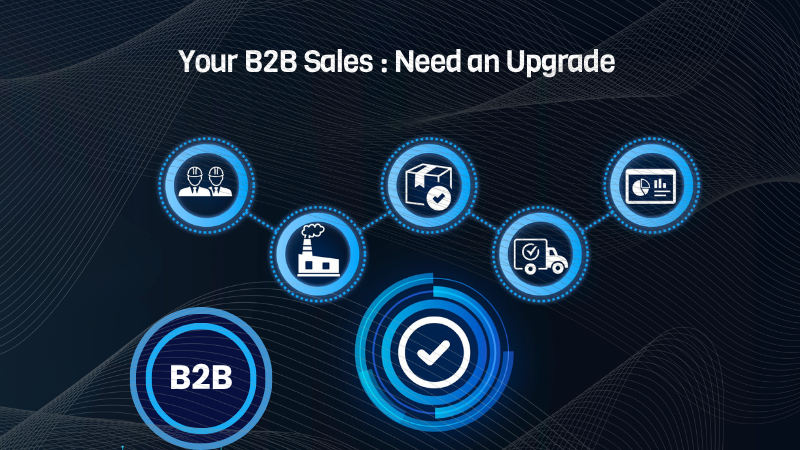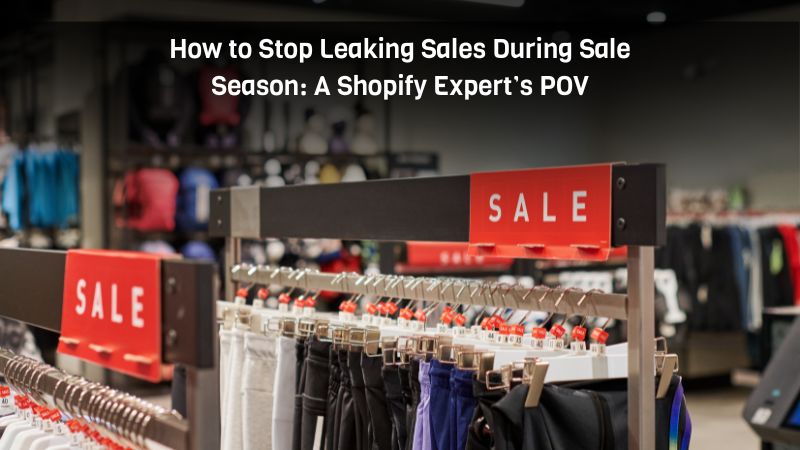Personalized shopping experiences have become crucial for ecommerce success, particularly as customers increasingly seek tailored interactions that resonate with their preferences and needs. According to a 2021 report by McKinsey & Company, 76% of consumers are more likely to consider buying from brands that personalize the customer experience. While the benefits of personalization are clear, many brands struggle with the implementation, often making mistakes that undermine their efforts.
In this blog, we’ll explore ten common mistakes to avoid when creating personalized shopping experiences, ensuring your ecommerce strategy not only enhances customer satisfaction but also drives conversions and loyalty.
1. Focusing personalization only on core customers
One common mistake is to assume that targeting your core customers with personalized experiences will have a positive impact on all site visitors. However, even within a specific demographic, customers have varied needs and shopping behaviors. Limiting your personalization efforts to just one segment can alienate other potential buyers.
Tip: Define key segments beyond your core demographic, such as first-time visitors, different age groups, or geographic locations. Tailor the shopping experience for each segment to maximize engagement and conversions.
2. Limiting personalization to yust one area of your store
Many businesses focus personalization efforts on one part of their ecommerce site, such as the homepage or product pages. This approach overlooks opportunities to create a cohesive, personalized experience across the entire customer journey.
Tip: Implement personalization throughout your site, including product recommendations, email communications, and checkout processes. For example, a lingerie brand might use a size quiz to personalize the shopping experience from the moment a customer arrives on the site.
3. Not tracking data from the personalized experience
Another mistake is not tracking the effectiveness of personalized experiences. Without data, it’s impossible to understand how personalization impacts your business or to make informed decisions about future strategies.
Tip: Set up data points and analytics tools to track key metrics. Use this data to refine your personalization efforts and demonstrate the return on investment to stakeholders.
4. Not pre-filling fields where possible
Simplifying the shopping experience by pre-filling fields with customer information is a small but impactful way to reduce friction and improve conversion rates. Customers appreciate the convenience and are more likely to complete a purchase when the process is streamlined.
Tip: Use data from previous interactions to pre-populate forms during checkout, sign-up processes, or account creation. This small effort can lead to a significant boost in conversions.
5. Not showing prices or shipping rates in local currencies
Displaying prices in local currencies and showing accurate shipping rates are essential for creating a seamless, trustworthy shopping experience. Failing to do so can result in cart abandonment, as customers may feel uncertain or frustrated by unexpected costs.
Tip: Implement geo-targeting to automatically show prices in the customer’s local currency and calculate shipping costs based on their location. This builds trust and encourages completion of the purchase.
6. Not creating a sense of urgency
Creating a sense of urgency through limited-time offers, low stock alerts, or next-day delivery options can drive customers to make quicker purchasing decisions. However, this tactic is often overlooked or underutilized.
Tip: Incorporate urgency triggers in your personalization strategy, such as countdown timers for sales or notifications about items being low in stock. These small nudges can significantly increase conversion rates.
7. Not capitalizing on integrations between Shopify apps
Many ecommerce businesses fail to leverage the full potential of their Shopify apps by not integrating them effectively. This can lead to missed opportunities for delivering personalized and engaging customer experiences.
Tip: Ensure your Shopify apps are integrated so that data flows seamlessly between them. For example, connect your loyalty program with your email marketing tool to send personalized offers based on customer behavior.
8. Invading customers’ privacy by collecting too much personal information
Collecting excessive personal information can make customers uncomfortable and lead to trust issues. Personalization should enhance the customer experience without infringing on privacy.
Tip: Only ask for information that is necessary for improving the shopping experience. Make sure your privacy policies are transparent and that customers know how their data will be used.
9. Over-personalizing the experience
While personalization is beneficial, overdoing it can overwhelm or alienate customers. Bombarding them with too many personalized recommendations or messages can backfire, leading to disengagement.
Tip: Strike a balance between personalization and simplicity. Focus on key areas where personalization will have the most impact, and avoid cluttering the customer journey with too many personalized elements.
10. Personalizing experiences based solely on demographic information
Relying solely on demographic information, such as age or gender, to personalize the shopping experience can lead to missed opportunities. Customers are more than just their demographics—they have unique preferences and behaviors that should be considered.
Tip: Use behavioral data, such as browsing history, past purchases, and real-time interactions, to create a more nuanced and relevant personalization strategy. This approach will help you connect with customers on a deeper level and improve their overall shopping experience.
Conclusion
Personalized shopping experiences are essential for ecommerce success, but they must be executed thoughtfully to be effective. By avoiding these common mistakes, you can create a more engaging and seamless experience for your customers, ultimately driving higher conversions and brand loyalty. At Binary, we are Shopify experts dedicated to helping you optimize your ecommerce strategy with personalized solutions that resonate with your target audience. Contact us today to learn how we can help elevate your ecommerce business with tailored Shopify website development.


